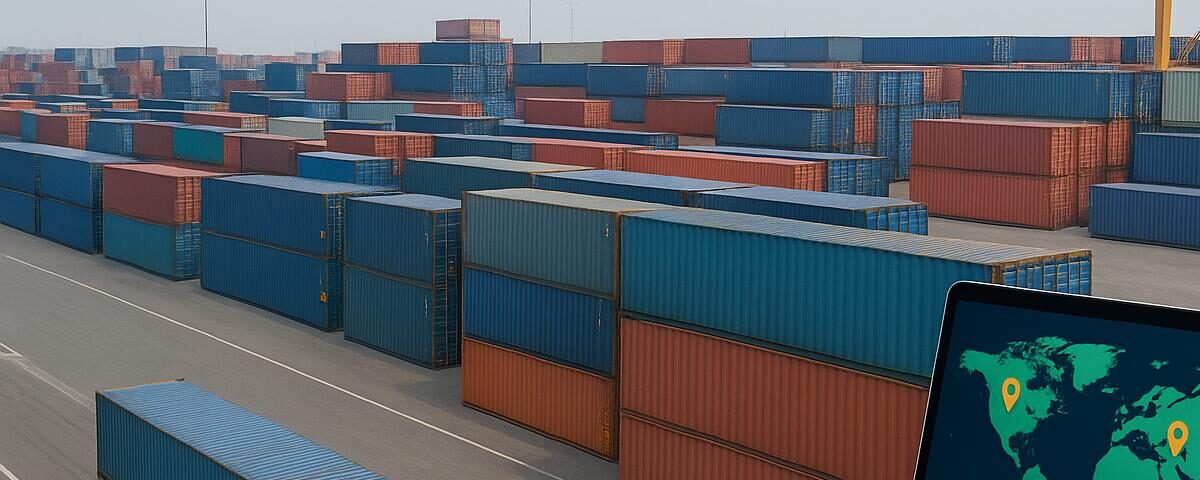E-commerce platforms, manufacturers, distributors and other logistics-based enterprises stand to benefit most from the findings in this white paper. Despite offering diverse services and products, these businesses share a common enemy: the risk of transportation delays, human errors and rising transaction costs.
To significantly reduce and possibly even eliminate such hazardous uncertainties, they should establish more synergistic and efficient connections between every stakeholder in their supply chains. In this regard, the technology-driven tools unveiled in this white paper have a vital role to play.
Optimised accessibility: Data at your fingertips
With high-speed Internet connections and cloud-based Transportation Management Systems (TMS), we can now easily access and track shipment locations from potentially anywhere around the world.
Also, the increasing automation of your loading and unloading operations, as well as warehouse management system ensures that this valuable business data is always available within a few clicks of the mouse.
By analysing these statistics, patterns begin to emerge regarding aspects of your operations such as transportation routes, delivery time and consumer preferences. Such insights enable you to make better-informed business decisions to further improve the effectiveness of your supply chain.
Additionally, the rising popularity of e-commerce transactions – especially during the Covid-19 pandemic – has further streamlined the online purchasing process for consumers.
Stay-at-home customers can easily order their chosen products online, track shipment locations and have the goods quickly delivered to their doorstep.
The e-commerce way of conducting business is thriving, according to industry analysts. Online store-building platform Shopify forecasts that global e-commerce sales will grow from US$5.13 trillion in 2022 to US$8.09 trillion by 2028.
Secure database: Protecting your precious
When it comes to safeguarding data (your operations’ most valuable asset), cloud-based Transportation Management Systems (TMS) have proven to be a secure alternative to on-premise solutions. TMS offers improved cybersecurity, convenient infrastructure updates, cost-effective pricing and reliable data backup and recovery for logistics businesses.
According to the antivirus and internet security provider, Norton, cloud service providers maintain security measures that offer better protection than on-premise data centres.
The logistics industry can also rely on another equally secure technology to facilitate transportation tracking and payment processing: blockchain. Beyond serving as the basis for cryptocurrency trading, this technology can benefit other fields such as logistics.
By providing stakeholders in the supply chain operative line with unalterable, decentralised digital ledgers, blockchain ensures transparent transaction records with your logistics partners. You can share data securely via the technology’s virtually incorruptible peer-to-peer network.
Eco-friendly advantage: When brands go green
When companies opt for eco-friendly and sustainable business practices, they are no longer merely complying with government regulations.
The brand appeal of such corporations is likely to increase among environmentally conscious consumers. As more customers recognise the importance of caring for the environment, they tend to support businesses that share similar principles.
In 2024, BusinessDasher conducted a study on the importance of corporate social responsibility (CSR) among consumers worldwide. The analysis showed that 72 per cent of consumers prefer to purchase more eco-friendly green products now compared to five years ago. Sustainable products are also reportedly seeing 2.7 times faster growth than non-sustainable ones.
Additionally, the study reported that 92 per cent of consumers are more likely to trust a company that supports social or environmental issues.
Carriers such as UPS, FedEX and Deutsche Post DHL Group have taken substantial leaps forward in eco-friendly business practices. The usage of battery-powered vehicles for last-mile deliveries and energy-efficient facilities is a testament to their commitment to staying green.
